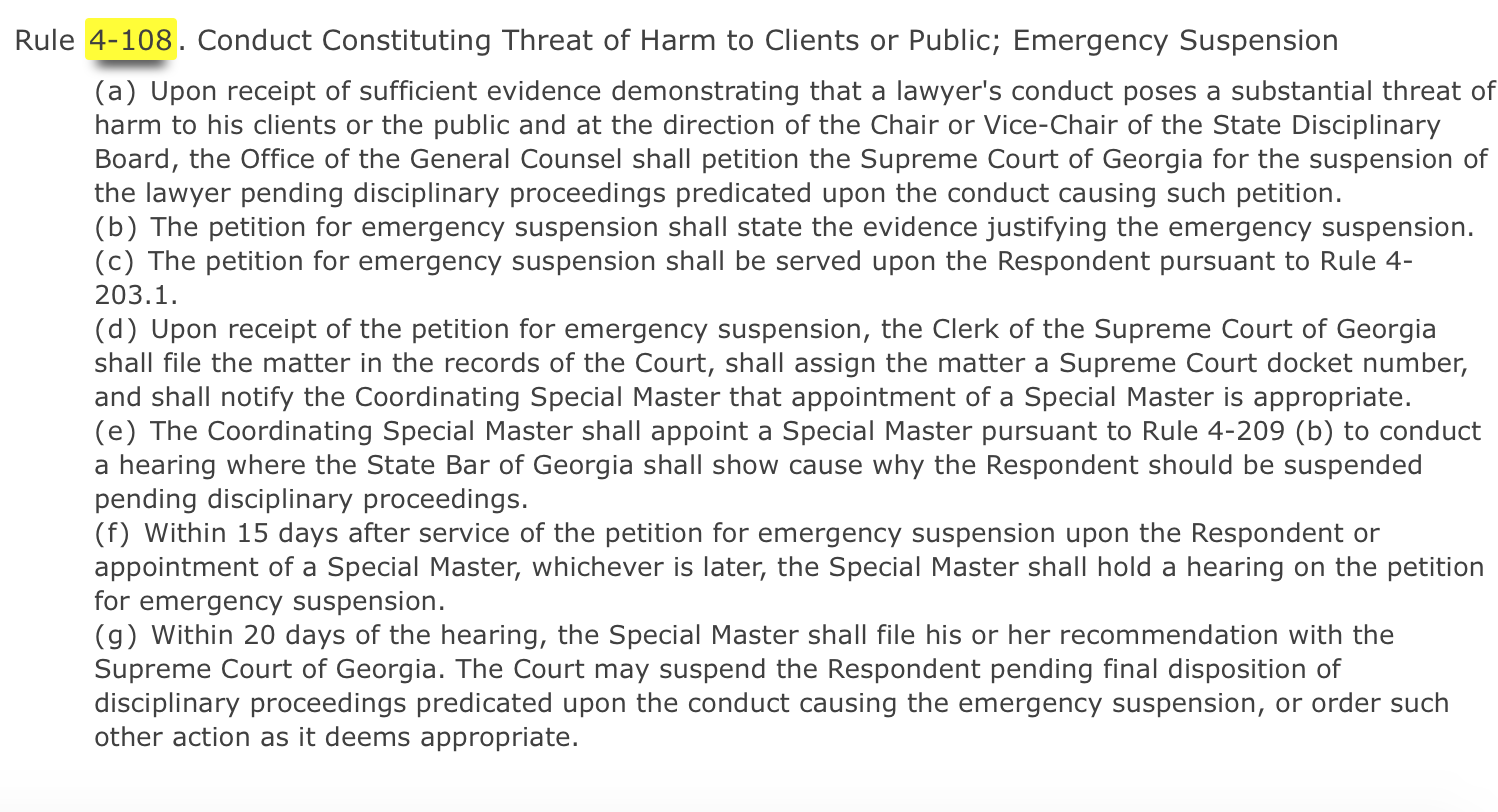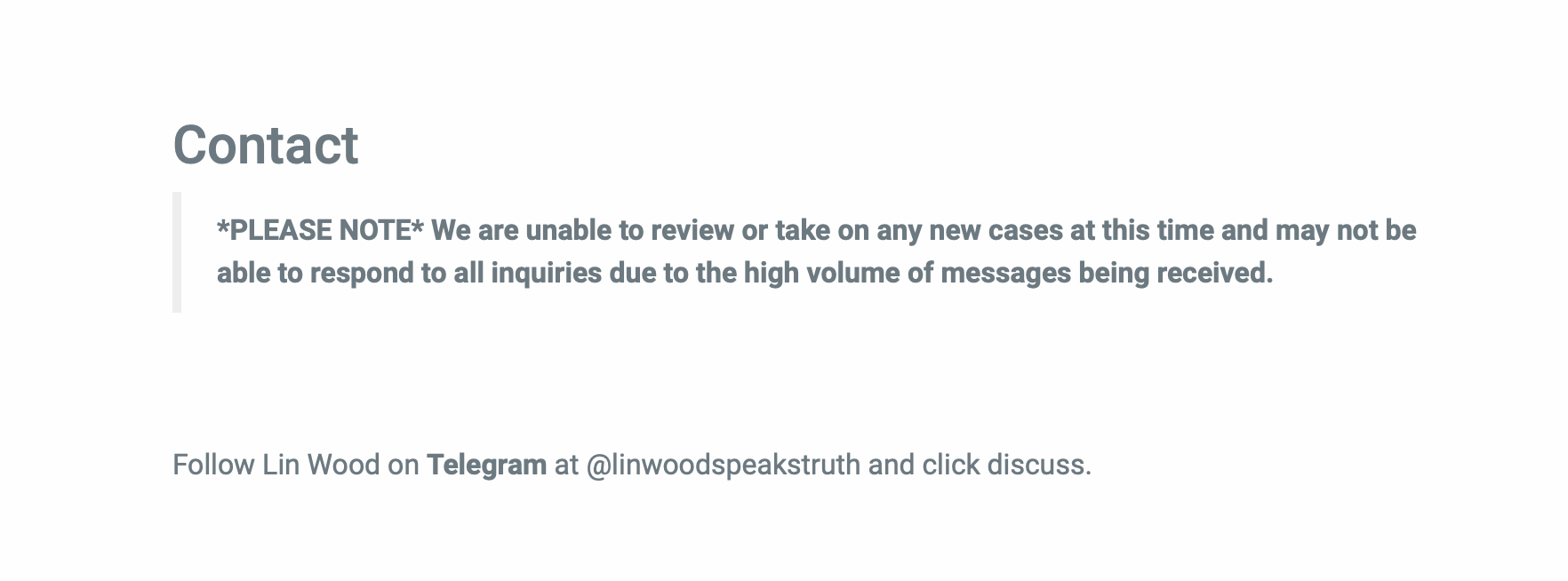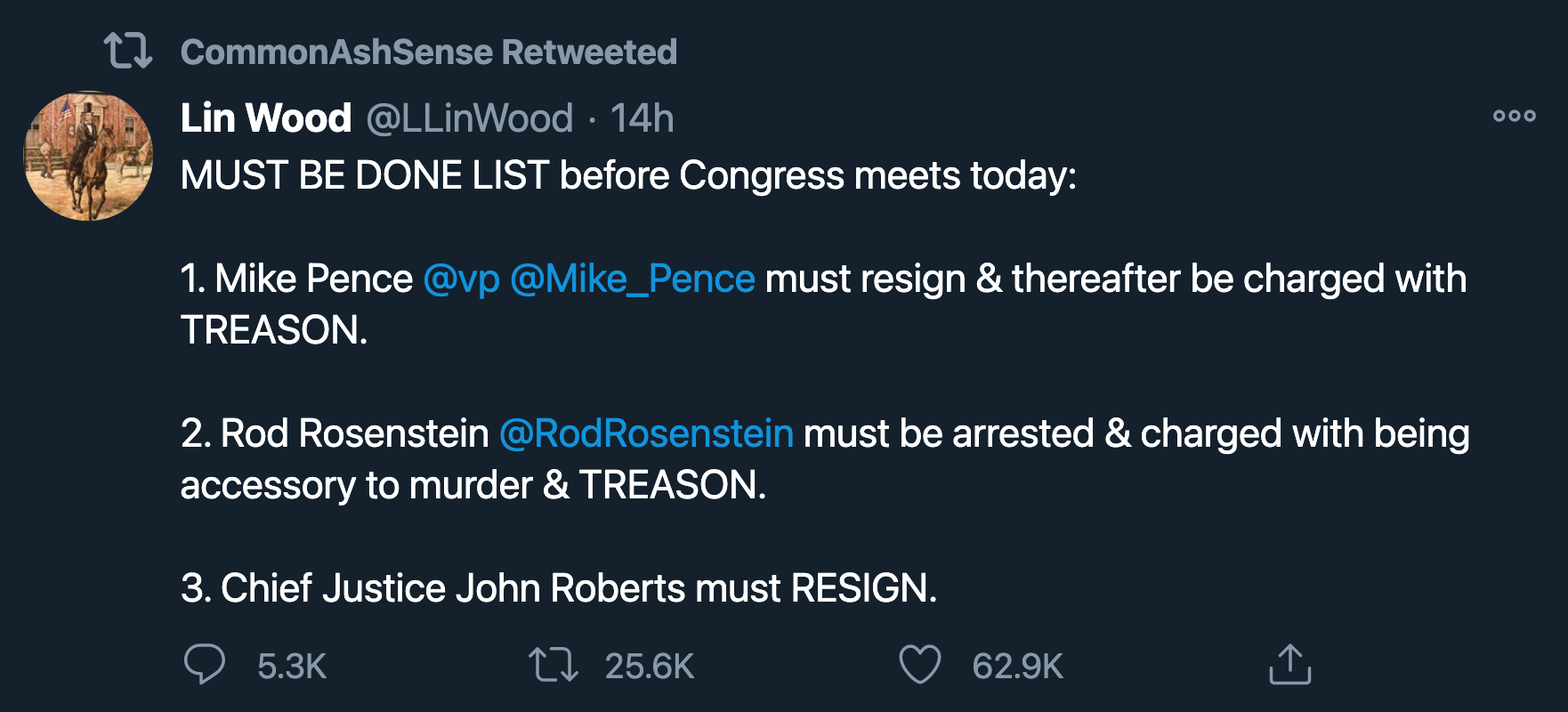
Because attorney Lin Wood said publicly on Thursday that the State Bar of Georgia demanded he undergo a mental health evaluation in order to keep his law license, the Bar told Law&Crime on Friday that it could confirm an active inquiry into Wood.
The Bar said that although the investigative process is normally confidential, Wood’s statement permitted the disciplinary body to confirm that he is under investigation “pursuant to Bar Rule 4-104.”
That rule states that the State Disciplinary Board can, in its discretion, refer a lawyer to a mental health professional:
Rule 4-104. Mental Incapacity and Substance Abuse
(a) Mental illness, cognitive impairment, alcohol abuse, or substance abuse, to the extent of impairing competency as a lawyer, shall constitute grounds for removing a lawyer from the practice of law.
(b) Upon a determination by the State Disciplinary Board that a lawyer may be impaired or incapacitated to practice law as a result of one of the conditions described in paragraph (a) above, the Board may, in its sole discretion, make a confidential referral of the matter to an appropriate medical or mental health professional for the purposes of evaluation and possible referral to treatment and/or peer support groups. The Board may, in its discretion, defer disciplinary findings and proceedings based upon the impairment or incapacity of a lawyer to afford the lawyer an opportunity to be evaluated and, if necessary, to begin recovery. In such situations the medical or mental health professional shall report to the State Disciplinary Board and the Office of the General Counsel concerning the lawyer’s progress toward recovery. A lawyer’s refusal to cooperate with the medical or mental health professional or to participate in the evaluation or recommended treatment may be grounds for further proceedings under these Rules, including emergency suspension proceedings pursuant to Rule 4-108.
A refusal to comply, the rule notes, could mean “emergency suspension proceedings pursuant to Rule 4-108.”

Law&Crime reached out to Wood for comment earlier in the day. We have reached out a second time to ask Wood if he plans to comply with the mental health evaluation, considering that the applicable rule states a “lawyer’s refusal to […] participate in the evaluation or recommended treatment may be grounds for […] emergency suspension proceedings.”
Wood responded by saying he has “not received any formal notice from the State Bar of Georgia.”
“I do not believe the State Bar has the right to violate my First Amendment right of free speech for comments made as a private citizen,” Wood said. “If they attempt to do so, I will aggressively defend my Constitutional rights just as I would do for a client in the same situation.”
Wood directed us to the other comments he made on Telegram @LinWoodSpeaksTruth.
Lawyers were critical of the State Bar for commenting on the Wood matter.
https://twitter.com/Popehat/status/1355243360164880385?s=20
Reuters’ Jan Wolfe was first to notice Thursday that Wood told his followers on Telegram that the Bar was demanding he get a mental health exam or else risk losing his license to practice law.
“The State Bar of Georgia told me today that they would demand a mental health exam from me if I wanted to keep my law license. My mind is sound. I have broken no rules. I asked what I had done wrong, I was only told it was about my social media comments. My speech,” the message said.
Wood had previously said that an attorney from the Georgia Bar had contacted his attorney to inquire if he would “submit to an independent health exam.”
“Are you kidding me?” Wood wrote. “If the State Bar of Georgia starts testing its members for mental health and alcoholism (I have not had a drink in over 8 years), 75% of the lawyers in Georgia will not be able to practice law. I will be one of the 25% still practicing.”
The contact information on the website for Wood’s firm currently says no new cases are being taken on at this time. The site also prompts visitors to follow him on Telegram.

Wood, a prominent defamation attorney, has represented many high-profile clients over the decades. But over the last year, his former law partners claimed to have observed a change in his behavior. After Nov. 3 came and went, Wood, Sidney Powell and others went on to form the “Kraken” team that tried and failed to overturn the 2020 election outcome at every level of the federal court system. While this was happening, Wood’s inflammatory tweets, pro-Trump appearances and lawsuits attracted a lot of attention—and not just the attention of the media.
After Jan. 6, Twitter deplatformed Wood. It was quickly learned that Ashli Babbitt, a Donald Trump supporter who was shot and killed by a police officer inside the Capitol, retweeted Wood the day she died. That would be one of the last things Babbitt did on earth. Wood had called for Vice President Mike Pence to be charged with “TREASON,” which is a crime punishable by death and a crime Pence did not commit. Wood also demanded that Chief Justice John Roberts resign.

In the weeks prior, Wood baselessly linked Roberts to dead pedophile Jeffrey Epstein.
“My information from reliable source is that Roberts arranged an illegal adoption of two young children from Wales through Jeffrey Epstein,” Wood wrote on Twitter before his account was permanently suspended. “I think we can all agree that Epstein knows pedophilia. If only Jeffrey Epstein was still alive . . .Wouldn’t that be something?”
“I am fully aware of the onslaught of attacks being made against me based on my revelations about Chief Justice John Roberts. Before attacking me, maybe fair-minded people would first ask Roberts to tell the truth,” Wood wrote in a follow-up tweet. “Or ask Jeffrey Epstein. He is alive.”
Law&Crime’s new podcast, “Objections” with Adam Klasfeld, obtained audio this week relating to a case against Wood brought by his former law partners.
The ex-partners had claimed in the litigation that recordings showed an “erratic” Wood confessing to assaulting them, threatening them in profane rants, and—in one instance—asserting that he may be “Christ coming back for a second time in the form of an imperfect man.” The lattermost was not among the recordings Law&Crime obtained, but several other recordings filed in Fulton County court were.
“Your law partner Lin Wood is not just good,” Wood can be heard referring to himself in the third person in one of the tapes. “Your law partner Lin Wood has courage and he has an inherent ability to know truth. Your partner Lin Wood is great. You should feel like shit, but I still love you. And I’m still your law partner.”
In response the podcast, Wood said he “would love to answer each of [our] questions about the frivolous lawsuit filed against me by the lawyers with whom I formerly shared office space.” He said he could not answer those questions because of a gag order in the case.
“No other lawyer has ever had a financial interest in L. Lin Wood, P.C. since it was formed in September of 1997. I have at all times been the sole partner,” he added—though, in the aforementioned recordings, he referred to the lawyers as partners.
Editor’s note: this story was updated post-publication with comment from Lin Wood.
Jerry Lambe contributed to this report.
[Image via FREDERIC J. BROWN/AFP via Getty Images]